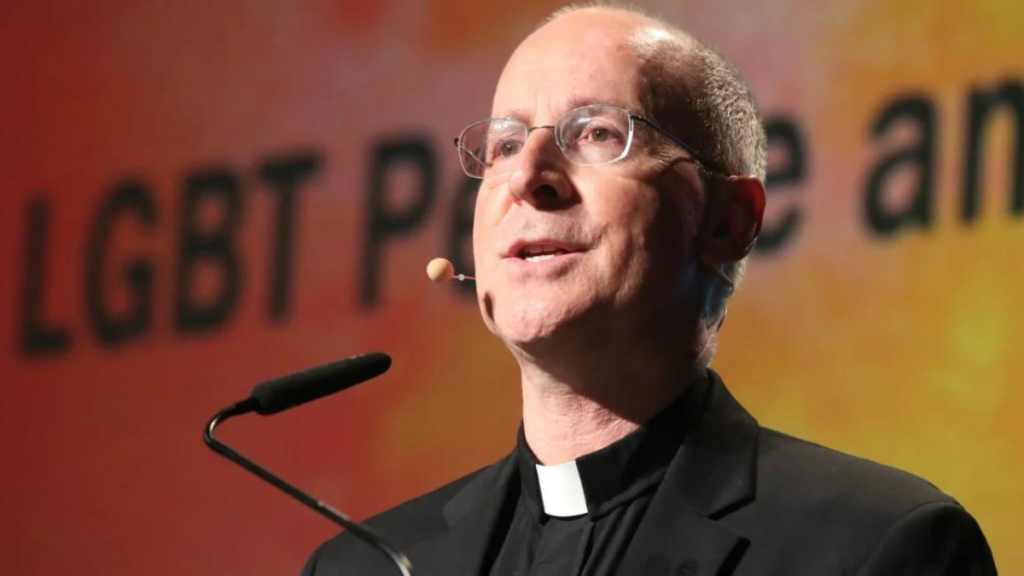Father Martin’s recent tweets have drawn attention for his comments on celebrating Pride Month alongside the Catholic devotion of the Sacred Heart in June. He stated that LGBTQ Catholics celebrate both, and suggested that the Sacred Heart of Jesus would be “poured out in love” on those who seek love and acceptance. These assertions stirred debate on social media, with many questioning how pride in homosexual activity or transgender identity aligns with the principles of the Sacred Heart devotion, which focuses on atonement for personal sins and the sins of mankind.
Saint Paul’s warning against pride in shameful actions was recalled, illustrating the controversy around Father Martin’s views. Martin is a known advocate for LGBTQ rights within the Catholic Church, often sparking criticism from other Church leaders for endorsing, rather than condemning, immoral sexual behavior.
In 2018, Archbishop Charles Chaput criticized Father Martin for his usage of the term “LGBTQ Catholics”, arguing that sexual orientations should not dictate individuals’ identities. Chaput stressed that there should not be separate categories within the Catholic community based on sexual preference, but rather a unified body under Jesus Christ. He emphasized that the Church’s position on human sexuality is not a hindrance, but the only real path to joy and wholeness.
Further controversy stemmed from Martin’s 2017 book, “Building a Bridge”, where he encouraged the Church to treat individuals with same-sex attraction with respect, compassion, and sensitivity. Archbishop Chaput expressed concern that Martin’s book did not encourage gay Catholics towards “conversion”, but rather, sought “affirmation”.
Chaput, along with other critics, highlighted the lack of engagement in Father Martin’s book with the fundamental issues that differentiate faithful Christians from those who see no sin in active same-sex relationships. This perceived omission has led some to question whether Martin disagrees with or is embarrassed by the Church’s teachings on homosexuality.
